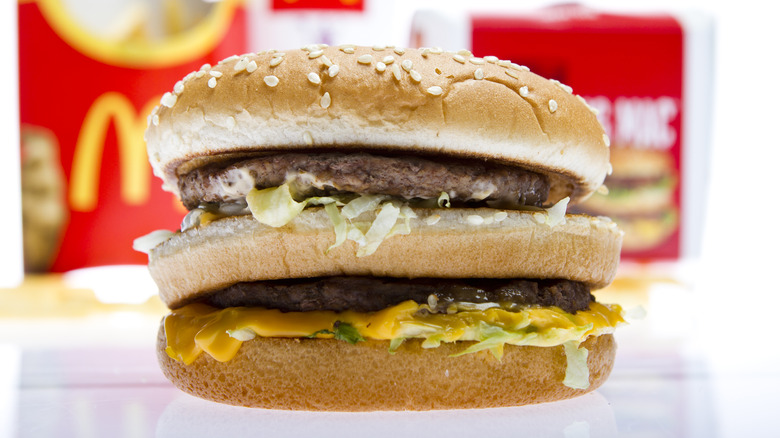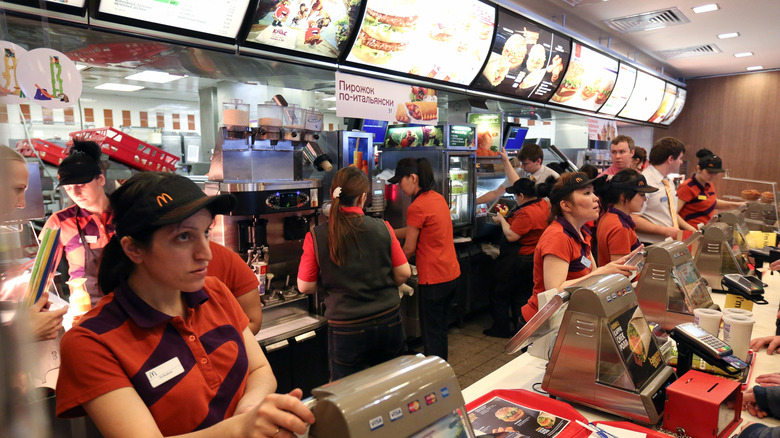McDonald's Just Made It More Expensive For Franchisees To Open In The US
The ability to display the Golden Arches is on its way to becoming pricier. For the first time in three decades, McDonald's is raising its royalty fees for new franchisees in the United States and Canada. Starting in January 2024, the fee will increase from 4% of franchise revenue to 5%, per a message delivered to operators by McDonald's CFO Ian Borden and SVP of global franchising Andrew Gregory. The adjusted royalty rate would align the U.S. and Canada with the McDonald's international market, where the royalty fee is already typically set at 5%.
Noting that a McDonald's franchisee might normally rake in $3.6 million in annual revenue, Restaurant Business estimated that the royalty hike could heighten costs by around $36,000. The new rate, however, will not affect the operators of existing franchise locations, nor those who purchase an existing McDonald's property from a fellow franchisee. Rather, it will apply to new franchisees, newly built restaurants, relocated restaurants, and properties purchased directly from the franchisor.
Franchisees operate 95% of the company's roughly 13,400 outposts in the United States. As McDonald's claims, companywide actions have led to more sales and higher revenues for franchise operators in recent years. According to the company, franchisee cash flow has jumped 35% over the past five years. Per Reuters, in 2022 alone, U.S. franchise locations accounted for about a third of the chain's revenue. It may not be so surprising that the burger giant has decided to reclaim some of that revenue from operators.
A change in the fee name is also sparking tensions with franchisees
Another feature of the fee hike that's ruffling the feathers of McDonald's network of independent operators is the wording. The company will change the name of the monthly charge from "service fee" to "royalty fee." To miffed franchisees, the shift in terminology is rife with connotations for future fee increases elsewhere.
The term "royalty fees" implies that it's a payment for operators to be permitted to use the McDonald's brand, trademarks, and intellectual property. Royalty fees are also generally charged to maintain the franchisor's overhead, pay for marketing and innovation costs, and support and grow the organization as a whole. Since the company has acknowledged this as a service fee previously, franchisees worry that the name change may indicate a cut in services provided for the price, and, therefore, the potential of new expenses for services rendered. They have also complained about the prospect of diminished profitability.
McDonald's U.S. President Joe Erlinger maintains that the company will not be changing any services provided to franchisees, according to CNBC. "We are trying to change the mindset by getting people to see and understand the power of what you buy into when you buy the McDonald's brand," he said. Even with that assurance, however, the change is already sparking backlash from operators and may lead to further disputes down the line.

